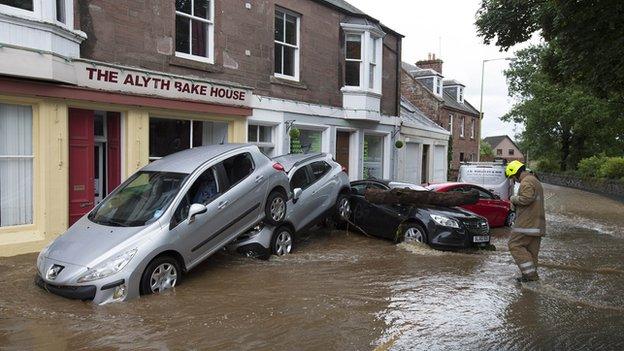'Extreme rainfall' caused Alyth floods, probe finds
- Published
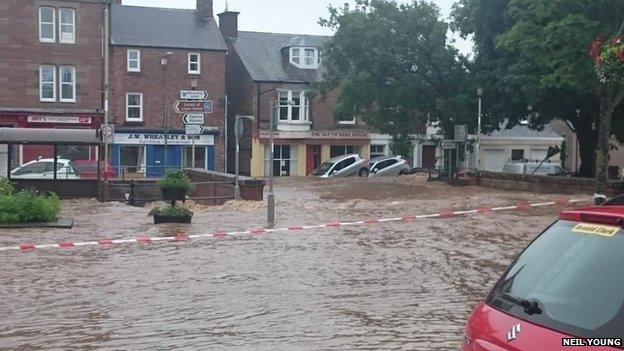
Homes and businesses in Alyth were evacuated as flood water rose
A joint investigation has concluded that severe flooding in a Perthshire village was caused by "extreme rainfall" and high river flows.
Homes and businesses were evacuated, cars were swept away and power cut off when floods hit Alyth in July.
Perth and Kinross Council, Scottish Natural Heritage and the Scottish Environment Protection Agency commissioned a report into the flood.
Their report said such a flood would probably only occur every 200 years.
The "in-depth analysis" found that up to 60mm (2.3in) of rain fell inside six hours on the morning of 17 July.
This resulted in a "peak flow" in the Alyth Burn, causing a flood which Sepa said had a probability of 0.5%, meaning it should happen once every 200 years.
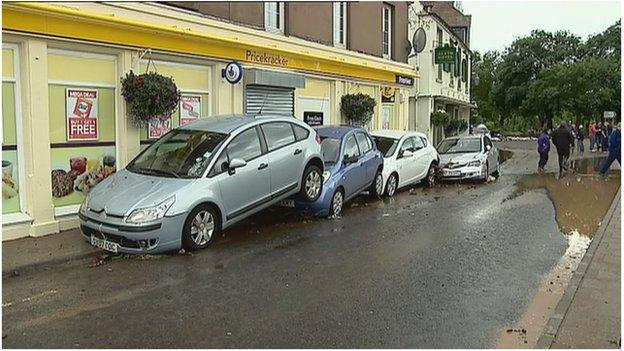
The floods caused extensive damage to homes, businesses and property
Local residents raised concerns about the potential impact of fallen timber on the scale of the flood, but the report said this was "not the cause of the flooding".
The Royal Zoological Society of Scotland was called in to assess whether beavers had had some impact, but concluded that "beavers made little or no significant contribution to the flood".
Perth and Kinross Council leader Ian Miller said the report would "provide a basis to develop potential measures to mitigate the impact of any further severe flooding".
Pascal Lardet, Sepa's Flood Unit manager, said the flood had been the largest in the village for 140 years, and had been triggered by "a very intense period of rain".
He said: "The flows resulting from the sheer volume of rainfall not only exceeded the capacity of the Alyth Burn, but also caused significant erosion to the banks of the watercourse throughout the catchment, with trees and other debris washed down the river.
"The joint report provides a valuable starting point from which to develop sustainable measures to mitigate the impact of severe flooding in the future."
- Published24 July 2015
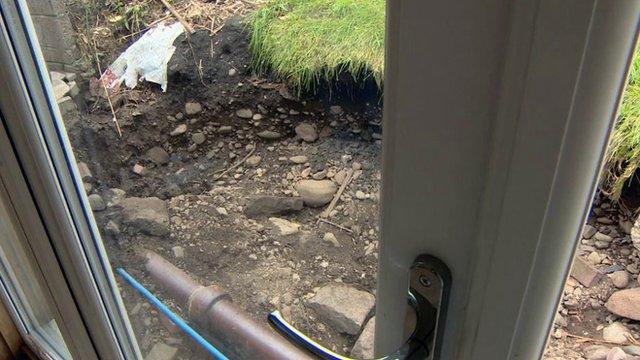
- Published21 July 2015
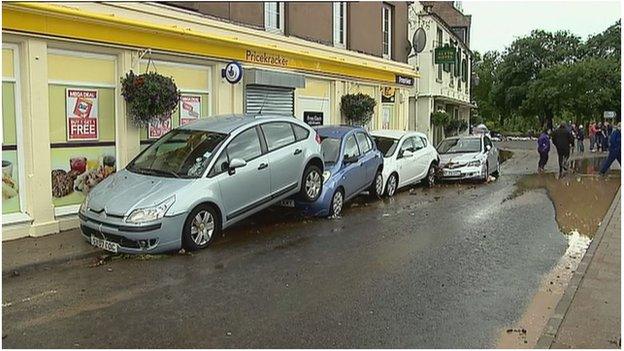
- Published17 July 2015
